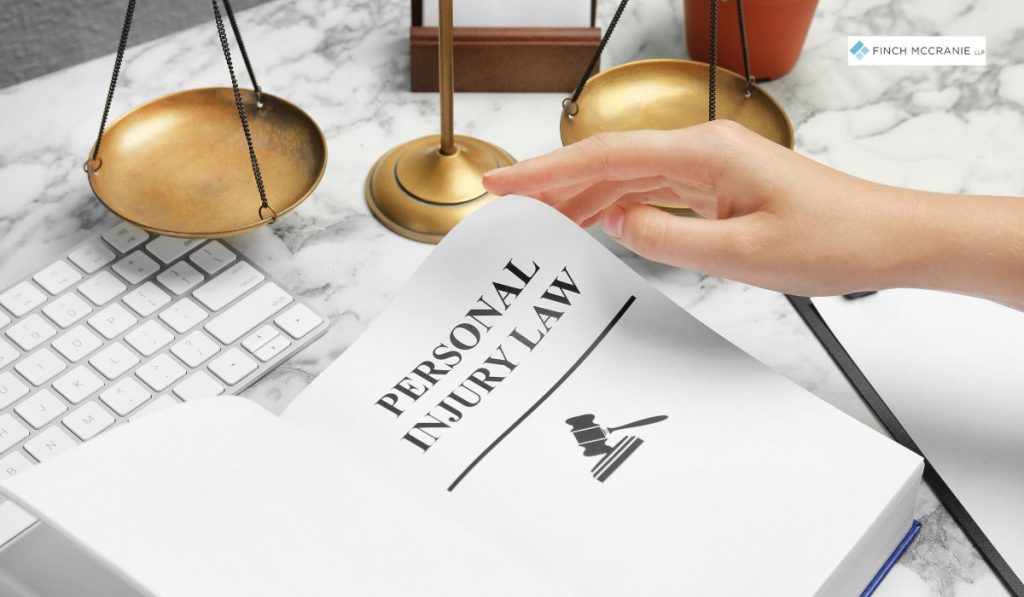Navigating the aftermath of a medical injury can be daunting and emotionally overwhelming.
When you or a loved one has suffered due to medical negligence, finding the proper legal representation is crucial to ensure you receive the compensation and justice you deserve.
However, choosing the right medical injury lawyer requires careful consideration of several vital factors.
This article outlines what to look for in a medical injury lawyer to help you make an informed decision.
Expertise and Experience
Specialization in Medical Injury Law
Medical injury law is a specialized field that requires in-depth knowledge of both legal and medical terminologies, procedures, and standards.
Look for lawyers who specifically focus on medical malpractice or personal injury law rather than general practitioners.
Specialized lawyers are more likely to be familiar with the nuances of medical cases and can better navigate the complexities involved.
Track Record of Success
Experience matters significantly in medical injury cases.

Evaluate the lawyer’s track record by examining their past cases, particularly those similar to yours.
Successful outcomes and a history of winning substantial settlements or verdicts indicate the lawyer’s proficiency and ability to handle your case effectively.
Qualifications and Credentials
Educational Background
Ensure that the lawyer has a robust educational background from a reputable law school.
While this doesn’t guarantee success, it often reflects a solid foundation in legal principles and critical thinking skills.
Professional Affiliations
Membership in professional organizations, such as the American Association for Justice (AAJ) or state-specific trial lawyer associations, can be a good indicator of a lawyer’s commitment to staying updated with the latest legal developments and maintaining high ethical standards.
Communication and Accessibility
Clear Communication
Effective communication is essential in legal cases. Your lawyer should be able to explain complex legal terms and processes in a way that you can understand.
They should be responsive to your queries and keep you informed about the progress of your case.
Availability
Assess the lawyer’s availability and willingness to devote time to your case.
A lawyer who is too busy may not give your case the attention it deserves.
Ensure they have adequate time to prepare and represent your interests.
Legal Strategy and Approach
Personalized Approach
Every medical injury case is unique, and a one-size-fits-all approach often needs to be revised.
Look for a lawyer who takes the time to understand the specifics of your case and tailors their strategy accordingly.
Litigation vs. Settlement
Understand the lawyer’s approach toward litigation and settlement.
Some lawyers may prefer to settle cases quickly out of court, while others are more inclined to take cases to trial if necessary.
Ensure their approach aligns with your expectations and best interests.
Fee Structure
Contingency Fees
Most medical injury lawyers work on a contingency fee basis, meaning they only get paid if you win your case.
This can be advantageous as it minimizes your upfront costs and aligns the lawyer’s interests with your own.
However, be clear about the percentage they will take from your settlement and any additional costs that might be incurred.
Transparency
Transparency in billing practices is crucial.
Your lawyer should provide a clear and detailed explanation of their fee structure, including any potential additional expenses such as court fees, expert witness fees, and administrative costs.
Resources and Support
Access to Medical Experts
Successful medical injury cases often rely on the testimony and analysis of medical experts.
Ensure your lawyer has established relationships with reputable medical professionals who can support your case with credible evidence and expert opinions.
Legal Support Staff
A well-equipped legal team can enhance the efficiency and effectiveness of your case preparation.
Please inquire about the support staff and paralegals who will be assisting your lawyer, as their expertise and coordination can significantly impact your case’s outcome.
Understanding Medical Injury Law
Types of Medical Injury Cases
Medical injury law encompasses a wide range of cases, including but not limited to:
- Misdiagnosis or Delayed Diagnosis: When a medical professional fails to diagnose a condition accurately or in a timely manner, leading to harm.
- Surgical Errors: Mistakes made during surgery, such as operating on the wrong site, leaving surgical instruments inside the patient, or performing unnecessary surgery.
- Medication Errors: Incorrect prescribing, dispensing, or administering of medications that result in patient harm.
- Birth Injuries: Injuries sustained by a newborn or mother due to medical negligence during pregnancy, labor, or delivery.
- Anesthesia Errors: Complications arising from improper administration of anesthesia.
- Hospital-Acquired Infections: Infections contracted during a hospital stay due to inadequate hygiene practices or improper care.
Understanding the type of medical injury you have experienced can help you select a lawyer with the appropriate expertise for your specific situation.
Evaluating Potential Lawyers
Interview Multiple Lawyers
Don’t settle for the first lawyer you meet. Interview multiple candidates to compare their approaches, experience, and communication styles.
This will give you a broader perspective and help you identify the best fit for your case.
Ask the Right Questions
Prepare a list of questions to ask potential lawyers during the initial consultation, such as:

- How many medical injury cases have you handled?
- What were the outcomes of those cases?
- How do you approach settlement negotiations versus going to trial?
- What is your fee structure, and what costs should I expect?
- Can you provide references from past clients?
The Role of Empathy and Support
Compassionate Representation
Dealing with a medical injury is not just a legal matter but also a profoundly personal and emotional experience.
A compassionate lawyer who shows genuine concern for your well-being can make the process more bearable.
Look for someone who listens empathetically and respects your feelings and experiences.
Emotional Support
While a lawyer’s primary role is to provide legal representation, having someone who understands the emotional toll of a medical injury can be invaluable.
A supportive lawyer can help alleviate some of the stress and anxiety associated with pursuing a legal claim.
Conclusion
Choosing the right medical injury lawyer is a multifaceted process that requires careful consideration of numerous factors.
From their expertise and track record to their communication skills and empathetic approach, every aspect plays a crucial role in the success of your case.
By taking the time to research and evaluate potential lawyers, you can find a dedicated professional who will fight for your rights and help you navigate the complex legal landscape of medical injury claims.
With the proper representation, you can focus on your recovery while your lawyer works diligently to secure the justice and compensation you deserve.
If you or a loved one has been affected by a medical injury and needs expert legal representation, reach out to Finch McCranie LLP for a consultation.
Their experienced team is ready to help you pursue the justice you deserve.
FAQs
What is a medical injury lawyer?
A medical injury lawyer specializes in representing clients who have been harmed due to medical negligence or malpractice. These lawyers have expertise in both legal and medical fields, enabling them to handle complex cases involving misdiagnosis, surgical errors, medication mistakes, birth injuries, and more.
Why do I need a specialized medical injury lawyer?
Medical injury cases involve intricate medical and legal knowledge. Specialized lawyers have the necessary expertise to understand medical records, consult with medical experts, and navigate the legal complexities of medical malpractice laws, increasing your chances of a successful outcome.
How can I assess a lawyer’s experience in medical injury cases?
Review the lawyer’s past cases, explicitly looking for those similar to yours. Check their success rate and the settlements or verdicts they have achieved. Additionally, ask for references from past clients and read client testimonials to gauge their reliability and competence.
What qualifications should I look for in a medical injury lawyer?
Look for a lawyer with a solid educational background from a reputable law school, membership in professional organizations like the American Association for Justice (AAJ), and a track record of handling medical injury cases. These qualifications indicate a lawyer’s commitment to their field and ethical standards.
How critical are client reviews and testimonials?
Client reviews and testimonials provide insights into a lawyer’s communication style, work ethic, and overall client satisfaction. Positive feedback from previous clients suggests that the lawyer is reliable and effective in handling medical injury cases.
What should I ask during the initial consultation with a medical injury lawyer?
Prepare questions to understand their experience and approach, such as:
- How many medical injury cases have you handled?
- What were the outcomes of those cases?
- How do you approach settlement negotiations versus going to trial?
- What is your fee structure, and what costs should I expect?
- Can you provide references from past clients?
How does a contingency fee structure work?
Most medical injury lawyers work on a contingency fee basis, meaning they only get paid if you win your case. Typically, they take a percentage of the settlement or award. Be sure to clarify the percentage and any additional costs that might be incurred during the case.
Why is clear communication important in a medical injury case?
Effective communication ensures that you understand the legal process, your rights, and the status of your case. A lawyer who explains complex legal terms in simple language and keeps you informed throughout the process can help reduce your stress and confusion.
 Trial Attorney Blog
Trial Attorney Blog

